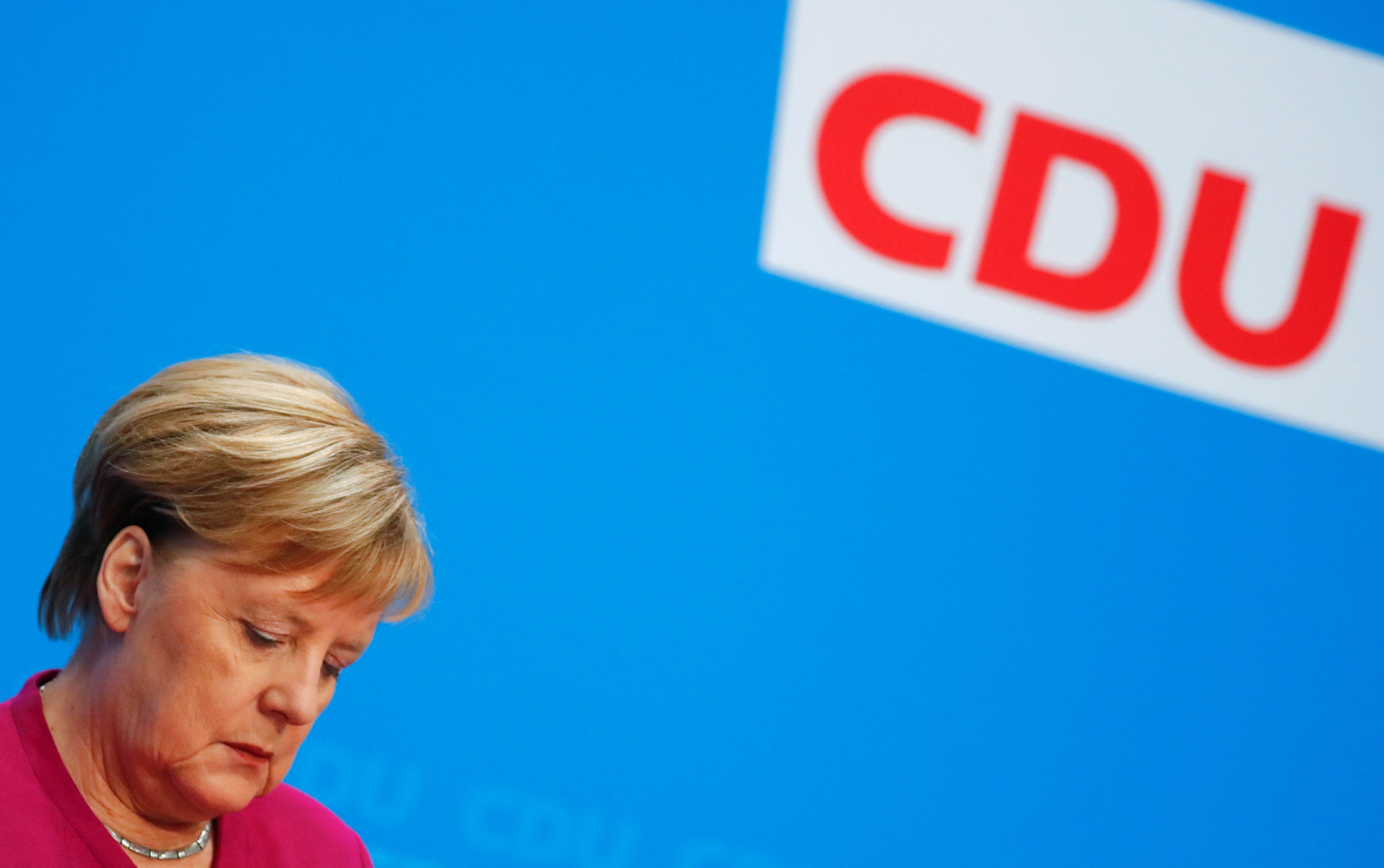October 30, 2018
After a series of tough electoral setbacks, German Chancellor Angela Merkel announced yesterday that she will not seek another term as the head of her governing Christian Democratic Union (CDU) party. To say that this marks the end of an era is an understatement – Merkel has led the party for almost two decades and governed Germany for 13 years.
The announcement formalizes what many have expected since a shaky re-election bid late last year: the twilight of the Merkel-era is here. What’s does it mean?
The fight at home: While Merkel’s current term as chancellor doesn’t end until 2021, her announcement sets off an immediate fight to succeed her as leader of the CDU, which holds party elections in December. The battle pits a traditionalist “old-guard,” who would carry on her legacy of pragmatic centrism, against a group of younger, more conservative leaders who want to shift the party rightwards to fend off the surging far-right Alternative for Germany party (AfD).
The wild card: If the center-left Social Democratic Party (SPD) – which has gotten hammered at the polls since reluctantly forming a coalition with the CDU last year – pulls the plug and forces new elections, her time could be up well before 2021. Merkel has stated she will not seek re-election under such circumstances.
A different Germany in the EU? Ms. Merkel has been the most powerful leader in the EU during some of its greatest successes and biggest challenges. During her tenure, the euro was officially introduced as the national currency in 19-member states, the bloc expanded to include Hungary, Poland, and much of the Balkans. But the EU also suffered the 2009 financial and associated southern European debt crisis, the 2014 Ukraine crisis, and the 2015 migrant crisis that has, in the years since, pitched much of Europe rightwards politically. Through all of those moments, Merkel embraced a central role for Germany in supporting the European Union project, even when it cost her at home – as now, it arguably has for the last time. Whoever succeeds her will likely take a much narrower view of Germany’s role within the EU.
More For You
Bad Bunny during the Super Bowl LX halftime show press conference at Moscone Center.
Kirby Lee-Imagn Images
100 million: The number of people expected to watch the Super Bowl halftime performance with Bad Bunny, the Puerto Rican superstar and newly minted Album of the Year winner at the Grammys.
Most Popular
Think you know what's going on around the world? Here's your chance to prove it.
- YouTube
An imminent US airstrike on iran is not only possible, it's probable.
Americans are moving less — and renting more. Cooling migration and rising vacancy rates, especially across the Sunbelt, have flattened rent growth and given renters new leverage. For many lower-income households, that relief is beginning to show up in discretionary spending. Explore what's changing in US housing by subscribing to Bank of America Institute.
© 2025 GZERO Media. All Rights Reserved | A Eurasia Group media company.
